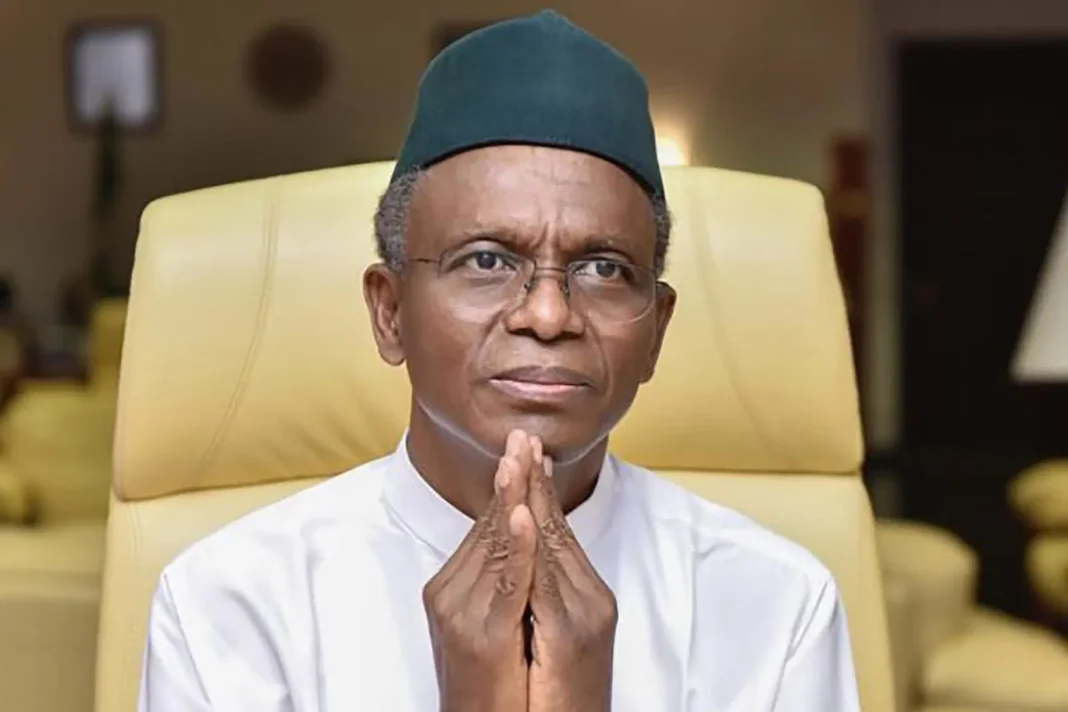El-Rufai Accuses Nigerian Judiciary of Corruption, Claims Justice is for the Wealthy…Former Kaduna State Governor, Nasir El-Rufai, has raised serious concerns about the integrity of Nigeria’s judiciary, accusing judges and legal practitioners of being deeply involved in corrupt practices.
In a recent statement, El-Rufai claimed that justice in the country is often “for sale,” with only the rich and influential able to afford it, leaving ordinary citizens at a severe disadvantage.
His allegations paint a grim picture of a legal system where fairness is compromised, and the pursuit of justice is distorted by money and power.
El-Rufai’s comments are not the first time he has taken aim at the judiciary. The outspoken former governor has previously criticized Nigeria’s judicial processes, including his controversial statements about Walter Onnoghen, the former Chief Justice of Nigeria. In 2019, Onnoghen was suspended following accusations of false asset declarations, and El-Rufai was vocal in labeling the then Chief Justice as “shameless” and unfit for office. His long-standing criticism highlights his deep dissatisfaction with the judiciary’s perceived role in facilitating corruption at the highest levels.
El-Rufai’s latest remarks have drawn attention due to their timing and the severity of the accusations. According to him, corruption within the judiciary is widespread and remains one of the key factors eroding public trust in Nigeria’s legal system. He argued that when the judiciary, which is supposed to be a pillar of fairness and justice, becomes a tool of the rich, it destroys the very foundation of the rule of law. The system, he claimed, often operates in favor of the wealthy, leaving those without financial means to navigate a system that is supposed to protect all citizens equally.
These allegations have sparked strong reactions from various quarters, including the Nigerian Bar Association (NBA). The NBA, which represents legal professionals across the country, has demanded that El-Rufai apologize for his comments. In a statement, NBA President Yakubu Maiyaku expressed concern that the former governor’s remarks could incite public anger against the judiciary. He called for a retraction, stressing that while there are indeed cases of misconduct among some judicial officers, it would be unfair to generalize that the entire judiciary is corrupt. Maiyaku urged Nigerians who have evidence of judicial corruption to bring it forward through proper channels rather than making sweeping statements that could damage the credibility of the legal system.
READ MORE: Africa’s rising music star Eleas Modelà debuts with classical Afro Pop single titled Jo fun mi
El-Rufai’s accusations are part of a broader narrative about corruption in Nigeria’s political landscape. His own administration in Kaduna has come under scrutiny for alleged financial misconduct. In 2024, the Kaduna State House of Assembly accused El-Rufai’s government of misappropriating over N423 billion, a charge he has vehemently denied. The former governor claims the allegations are politically motivated, intended to tarnish his reputation ahead of his national political ambitions. El-Rufai has also filed a petition to transfer the case to another judge, citing concerns about bias and claims that he was not receiving a fair hearing in the case.
The backdrop of El-Rufai’s accusations against the judiciary and the allegations of financial mismanagement in his own administration highlights the ongoing struggles with corruption within both the political and judicial systems in Nigeria. As the investigations into his administration continue, the growing calls for judicial reforms become more urgent. El-Rufai’s criticism of the judiciary adds to the complex conversation about the need for transparency, accountability, and structural change in the Nigerian legal system.
While El-Rufai’s comments may be seen as part of a broader political strategy, they have nonetheless reignited discussions about the state of the judiciary in Nigeria. The calls for reform have never been more pressing, as many Nigerians continue to express frustration with a system that often appears to be more responsive to those with money and influence than to the ordinary citizen seeking justice. The controversy surrounding the former governor’s remarks, combined with ongoing investigations into his administration, is likely to keep the issue of judicial and political corruption at the forefront of public debate.
As the legal proceedings surrounding El-Rufai continue, his accusations against the judiciary will likely keep fueling discussions on the need for greater accountability within Nigeria’s political and legal institutions. These developments serve as a stark reminder that the road to meaningful reform in Nigeria’s judiciary may still be long and fraught with challenges, as power, wealth, and corruption continue to shape the landscape of justice in the country.




